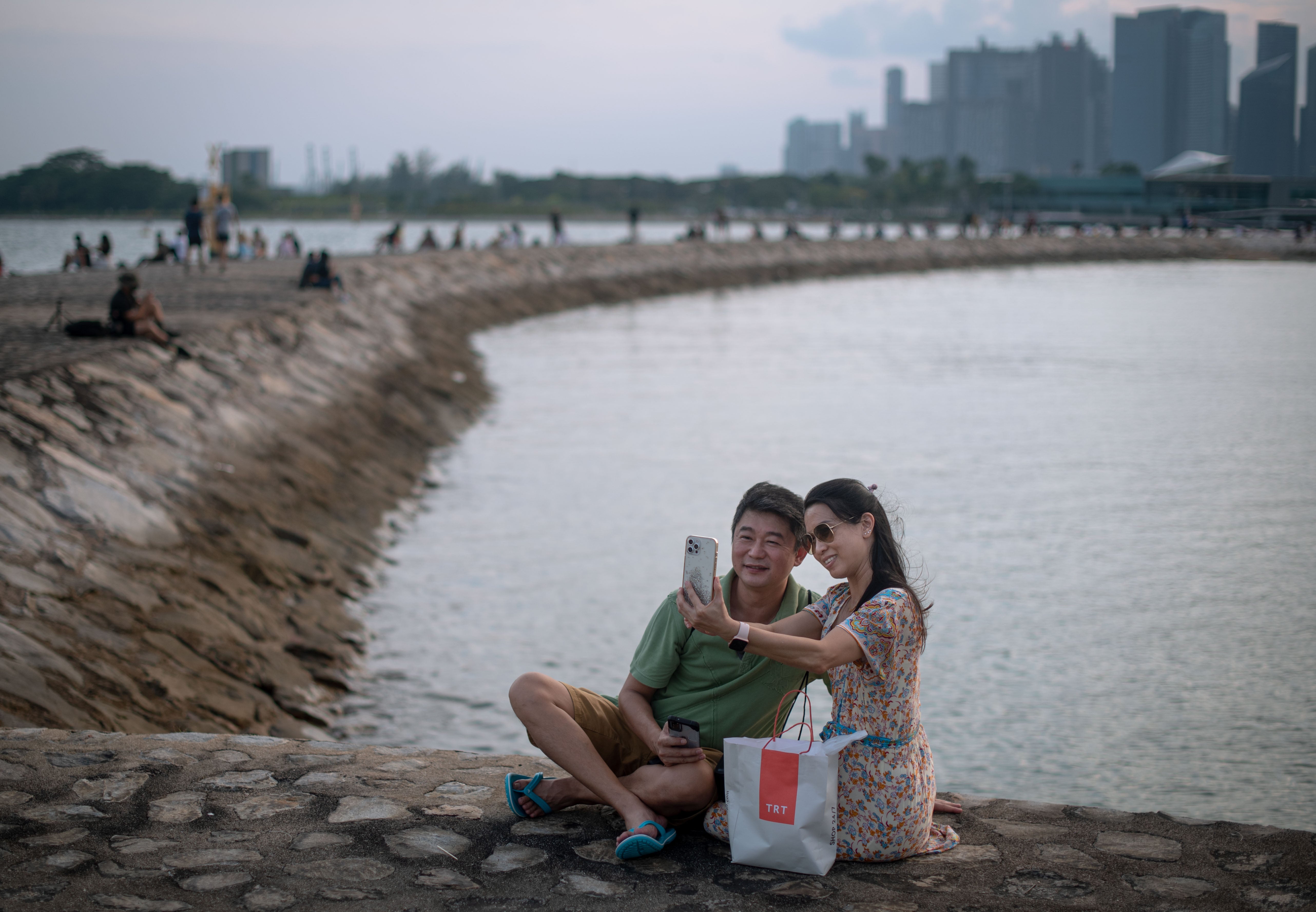No more lockdowns or counting Covid cases: Could Singapore’s new normal be model for other countries to follow?
The new roadmap will make it ‘possible to live normally’ with the Covid pandemic, health ministry says

Even as countries around the world remain under strict lockdown measures while bracing for new Covid waves, Singapore has revealed its plan to transition to a new normal.
The model drawn up by three members of Singapore’s Covid task force would aim to shift the focus towards treating Covid-19 infections as endemic, like influenza, and change the way the country reports its daily Covid updates.
Social restrictions would be eased “as we move to a new phase of battling the pandemic, with a strong focus on preventing the virus from spreading, vaccinating our population and starting the process to transit to a new normal,” the ministry of health said on Tuesday.
Singapore has reported just 36 deaths during the entire pandemic by following the "zero transmission" model, which requires tough quarantine and lockdown measures but comes with serious economic consequences.
The three ministers from the Covid-19 multi-ministry task force – Gan Kim Yong, Lawrence Wong and Ong Ye Kung – explained their roadmap for a return to normalcy in an article in the Straits Times.
Shifting away from the “zero transmission” model will be possible once a large number of vaccinations “turn the pandemic into something much less threatening”. At the same time, it recognises that new more infectious versions of Covid like “the worrisome Delta variant” make it more difficult to completely stamp out new cases.
Singapore will no longer report daily Covid cases, the ministers say. The focus would shift to monitoring outcomes, like how many patients require hospitalisation or intensive care and reporting deaths, in the same way seasonal flu outbreaks are monitored.
The plan is predicated on a successful mass vaccination programme. The city-state is on track to hit its prime minister’s goal of vaccinating two-thirds of the adult population with at least one dose by early July, and wants to fully vaccinate two-thirds by 9 August, its National Day.
Singapore also plans to give booster jabs in the future as new coronavirus variants are emerging. A comprehensive and multi-year vaccination programme would be formulated assuming Covid-19 isn’t going to disappear in the next year.
"Vaccines are highly effective in reducing the risk of infection as well as transmission. Even if you are infected, vaccines will help prevent severe Covid-19 symptoms," the ministers said.
Testing and surveillance would still continue but it would not be with the end goal of quarantining people. Instead, the purpose would be to ensure that events, social activities and overseas trips are taking place with minimum to no risk – and especially to track emerging variants of concern.
Rules banning large gatherings and major events will be phased out gradually, and the end of lockdowns will allow businesses to continue without disruptions, the ministers said.
Travel would be made quarantine-free to countries that have the pandemic under control, and travellers would be exempt from quarantine upon showing a negative test result on arrival.
"With vaccination, testing, treatment and social responsibility, it may mean that in the near future, when someone gets Covid-19, our response can be very different from now," the ministers said.
Jeremy Lim, professor at the Saw Swee Hock School of Public Health under the National University of Singapore said: “Singapore cannot and will not remain closed. Open borders and trade are our lifeblood.
“It all boils down to the risk appetite on the part of the decision makers, and clarity. And you do get a sense from the ground that people are getting fatigued and frustrated,” he told Bloomberg News.
He said the decision to reopen depends on whether the healthcare system can sustain the pressure when needed. Mr Lim said that “at least in the Singapore setting, yes it can”.
The government has not yet given a detailed timeline for easing and a precise plan to ease restrictions, but said ministers are “drawing up a roadmap” for the major transition to begin.
Join our commenting forum
Join thought-provoking conversations, follow other Independent readers and see their replies
Comments
Bookmark popover
Removed from bookmarks